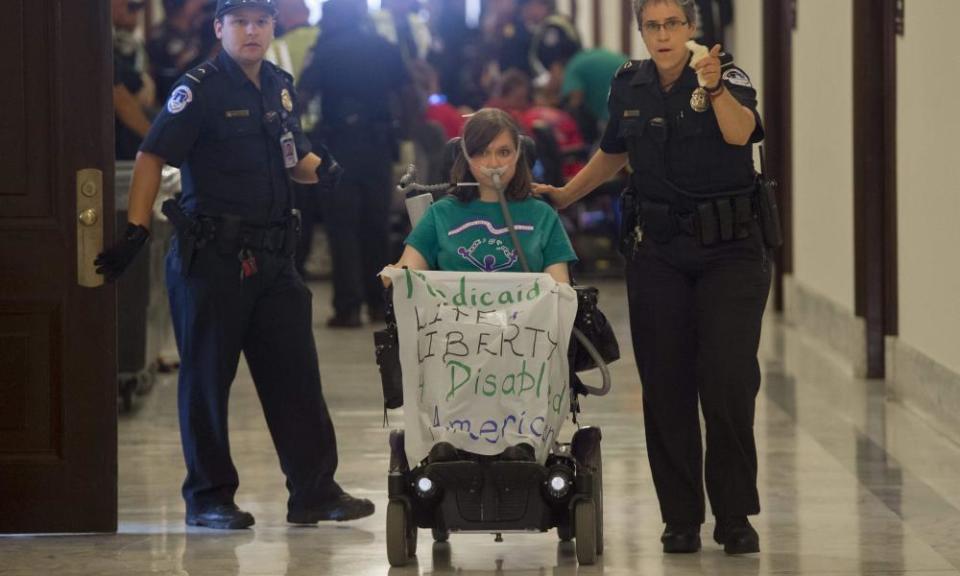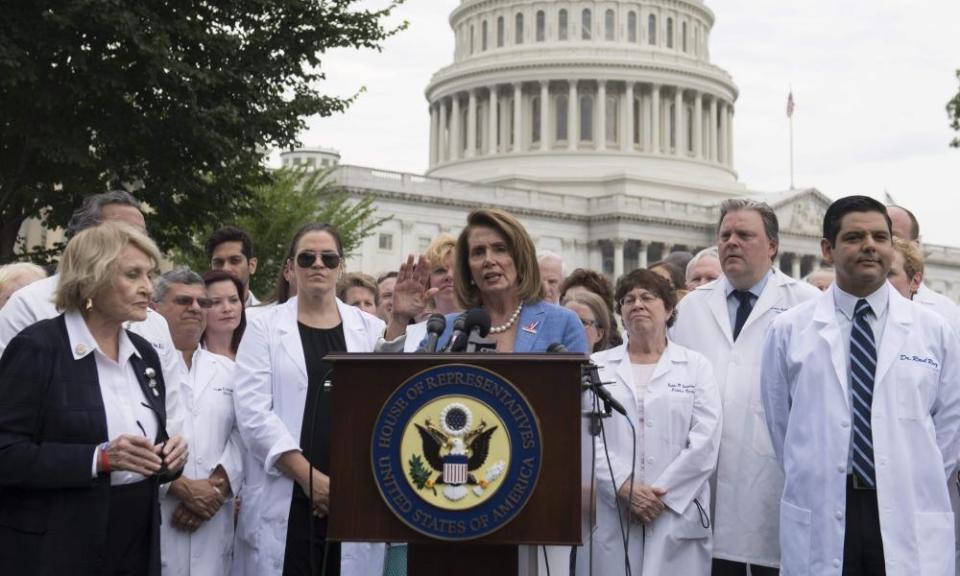Will losing health insurance mean more US deaths? Experts say yes

The Republican healthcare bill announced on Thursday would cause thousands of Americans to die each year, according to physicians who study government data.
Using national health surveys, doctors and academics have tested whether a lack of health insurance increases the probability of death. Most have concluded that it does.
Fewer insured
Measuring the potential impact of the 142-page Republican bill on people’s actual health is difficult. Those who could afford to keep their health insurance under the bill, for example, could nonetheless find that rising costs force them to choose cheaper options or forego certain treatments altogether.
Understanding the likely impact of the Republican bill on the availability of health insurance itself is much easier. In part, that’s because there is strong evidence that the target of the Republican bill, the Affordable Care Act (ACA), has reduced the number of Americans without health insurance.
The Congressional Budget Office (CBO), a nonpartisan federal agency, estimated last month that 23 million people would lose their health insurance over the next decade if the Republican bill that passed the House made it into law. The CBO is yet to score the Senate version.
More deaths
Various studies have looked at whether uninsured people have a higher risk of death. The most cited was published by the American Journal of Public Health in 2009 and found that nearly 45,000 Americans die each year as a direct result of being uninsured.
Dr Andrew Wilper and a team at Harvard Medical School used two main datasets: they took a nationwide US survey of more than 30,000 people conducted by the Centers for Disease Control and Prevention (CDC) and checked it against the National Death Index, another national database collected by the CDC.

The two sets of numbers allowed the researchers to examine something called hazard ratios, which are a way to measure risk. For example, if a clinical trial finds that drug users are three times more likely experience a certain side effect, that drug has a hazard ratio of three.
In America, deep inequality can affect the usefulness of data like this. Lots of things can increase an American’s chances of being sick – being a person of color or being poor to name just two – and if those factors overlap with a lack of health insurance, it can be difficult to determine what exactly is affecting an individual’s risk of death.
In the Harvard study, the researchers had 9,000 people in their dataset – enough that they were able to ensure they were really measuring the impact of a lack of health insurance.
The researchers found that a lack of health insurance had a mortality hazard ratio of 1.40. In other words, they concluded that Americans without health insurance were 40% more likely to die than those with it, even after taking into account the individual’s “gender, age, race/ethnicity, poverty income ratio, education, unemployment, smoking, regular alcohol use, self-rated health, physician-rated health and body mass index”.
The researchers calculated that in 2005, lack of health insurance resulted in 44,789 deaths of Americans age 18 to 64.
Criticism
Those who have sought to repeal the ACA have rejected this connection between health insurance and health. However many of them, such as Republican Raul Labrador when he spoke at a town hall event last month, have seemed unable to cite evidence in support of their position.
There is scant evidence directly against the connection between mortality and health insurance. But that does not mean that studies such as the one published in 2012 are without flaws.
For one thing, the numbers do not necessarily match up. A 2002 study published by the Institute of Medicine found that 18,000 people died each year due to lack of health insurance. A study published by the Urban Institute put the figure at 22,000 deaths in 2006.
But while estimates disagree, the researchers who produce them often do not. In a 2013 Politifact interview, the author of the Urban Institute study, Stan Dorn, said: “It makes sense that as time goes by … health insurance coverage has greater impact on health outcomes.”
The specific numbers might be hard to agree upon, and even harder to forecast if the Republican bill is passed. But the link is clear: a lack of health insurance could increase the risk of death for millions of Americans.

 Yahoo News
Yahoo News 